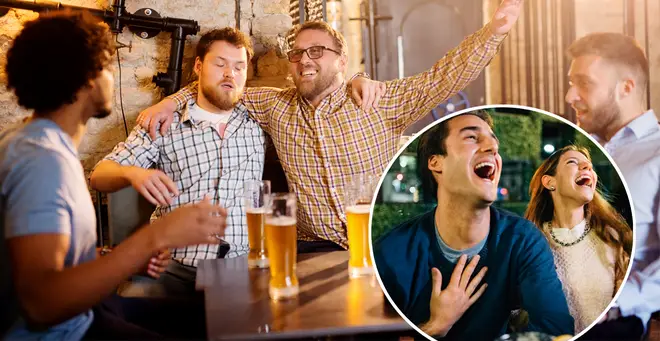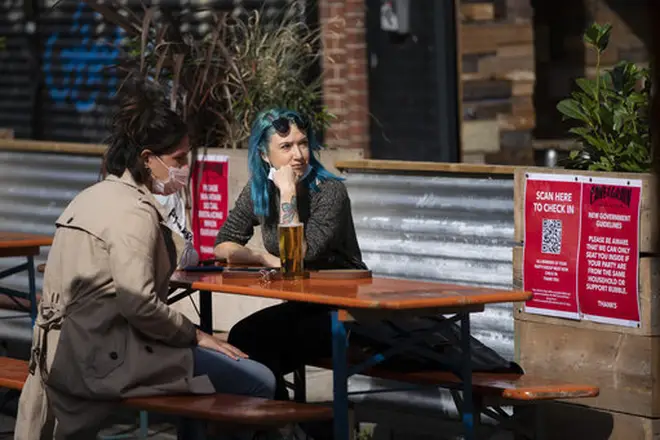Pubs told to stop drinkers 'singing and dancing' - or face £1,000 fine
29 September 2020, 08:13

Pub landlords in England have been given a strict new set of rules to follow as a result of the new coronavirus restrictions.
Drinkers in pubs won't be permitted to sing or dance during their visit, with landlords facing fines of up to £1,000 for rule-flouters.
In new rules introduced on Sunday, it will also be illegal for venues to play music of over 85 decibels, according to a report by Metro.
Read more: Neighbours urged to call police on self-isolation cheats as £10,000 fine introduced
Venues will be required to take ‘all reasonable measures’ to stop customers dancing, singing, and socialising in groups of six or more.

The rule on music volume was introduced to stop customers shouting over each other, which can increase the risk of infection.
Pub managers should also maintain an 'appropriate distance' of two metres between each table - but one metre is permitted if the tables are back-to-back, screens separate them, or other preventative measures are taken.
Read more: Emergency lockdown 'could see socialising banned and pubs closed in London and northern England'
Bookings of six people or more will also be prohibited, and managers are required to stop groups of six or more mingling at the venue.

The New Coronavirus Measures Announced By The Prime Minister
Fines of up to £1,000 can be issued to landlords who do not enforce the rules, which can be halved to £500 if paid promptly.
The Prime Minister's spokesperson said: "We know that the vast majority of people want to do the right thing. What we are setting out is that those who recklessly take risks with the health of their friends, families and communities should expect this to be taken seriously."
NOW READ:
Supermarkets bring in rationing as panic-buying returns






















